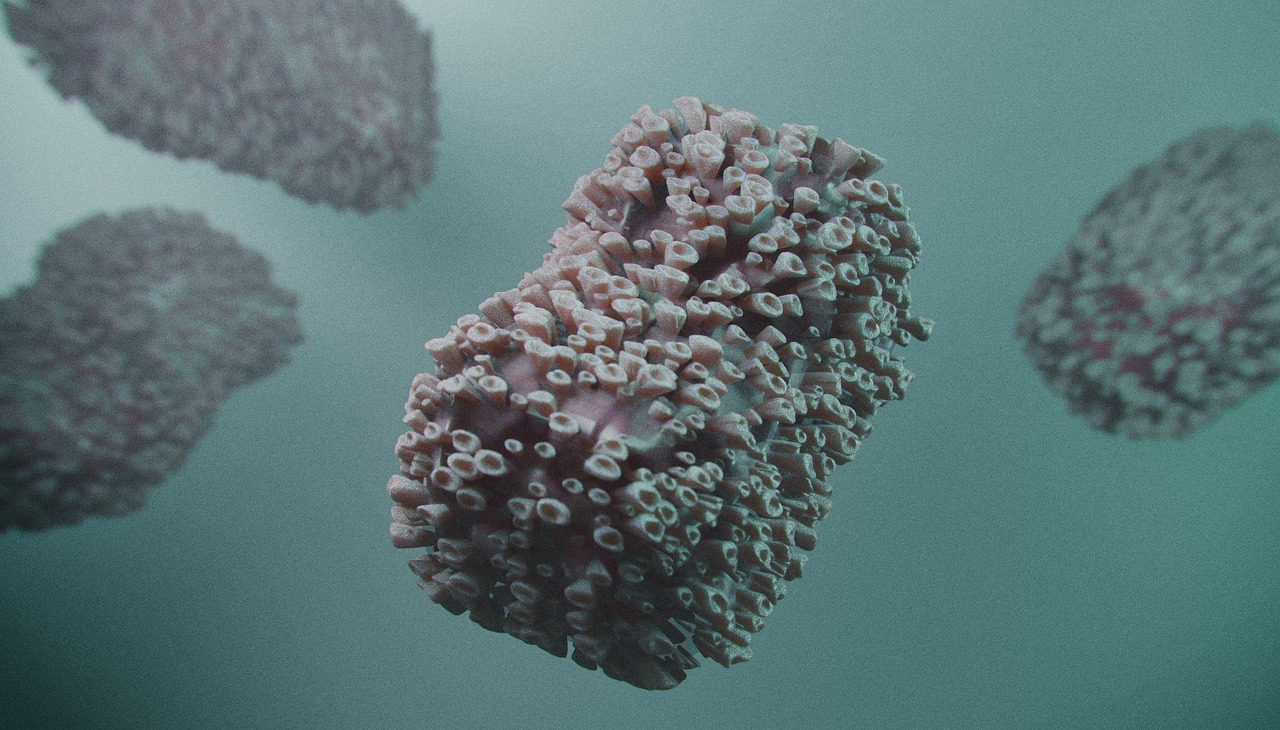
This is Gilead Sciences' emergency plan for Monkeypox
The biopharmaceutical company announced a millionaire donation to combat this new health emergency.
Gilead Sciences, Inc., the leading innovative biopharmaceutical company in the field of HIV, driving advances in treatment, prevention, and cure research, in partnership with a coalition of organizations, including GLAAD, Human Rights Campaign (HRC), National Black Justice Coalition (NBJC), National Center for Lesbian Rights (NCLR), and the National Minority AIDS Counsil (NMAC), recently announced a series of immediate actions in response to the health emergency caused by the outbreak of the monkeypox virus (MPV), which is affecting disproportionately the LGBTQ+ community, particularly men who have sex with men (MSM), as well as those living with HIV.
Gilead will provide up to $5 million in global grant funds to immediately support initiatives aimed at public education and vaccine hesitancy communications, as well as those that can provide a public policy response and a global emergency fund for organized communities in regions with active outbreaks of monkeypox.
“Throughout our history, Gilead has worked to address critical public health challenges and healthcare disparities, particularly those faced by the LGBTQ+ community or impacted by the HIV epidemic. Today we are proud to work with our longtime collaborators around the world to help meet the immediate needs of impacted communities and to help identify longer term solutions to this emerging crisis. At Gilead, we are also accelerating and expanding our early-stage antiviral drug screening program to identify new molecules for potential future treatment of MPV infection,” said Deborah Telman, Executive Vice President, Corporate Affairs and General Counsel of Gilead Sciences.
Health Emergency
A recent New England Journal of Medicine study looking at 528 MPV infections diagnosed between April 27 and June 24 at 43 sites in 16 different countries, found that 98% of cases were male homosexual or bisexual, and 41% were HIV-positive patients.
The MPV outbreak was declared a public health emergency by the U.S. Department of Health and Human Services on August 4.
Benefited Areas
Gilead's Global Monkeypox Outbreak Emergency Fund will award resources of up to $50,000 to existing grantee organizations working in regions with active MPV outbreaks.
Funds can be used to cover expenses, such as community mobilization activities that specifically address the MPV outbreak in areas disproportionately affected by HIV, as well as to purchase essential safety materials, and alleviate operational costs related to HIV testing and service interruptions.
RELATED CONTENT
“As we saw with HIV, COVID-19, and now MPV, disinformation continues to challenge the LGBTQ+ community. This new collaboration will enable creating and distributing content and resources to help our community know the facts and to understand prevention and treatment for MPV. When communities receive accurate, timely information, they are empowered to take appropriate action, leading to long-lasting, positive health outcomes,” stated Sarah Kate Ellis, President and CEO of GLAAD.
Inter-institutional Work
Through a comprehensive communication campaign specifically targeting the LGBTQ+ community, GLAAD, HRC, NBJC, and NCLR will help continue to ensure that critical information about MPV reaches those who need it most.
The national coalition's public education efforts will include the creation of videos, graphics, and other information resources focused on vaccines, prevention, and treatment for distribution to the media, community centers, and organizations, as well as organizers and managers of LGBTQ+ events and venues.
Reactions
“As MPV continues to impact our communities, we’re witnessing a concerning amount of misinformation and confusion. That misinformation is especially harmful to BIPOC communities who historically are sidelined when it comes to equitable access to care and treatment. Over the past several weeks, we’ve also seen the LGBTQ+ community doing what we’ve always had to do: caring and advocating for each other. In the same vein, we look forward to working together with Gilead and other partner organizations to combat the stigma that prevents people from seeking the care they need,” noted Joni Madison, Interim President of HRC.
“The National Black Justice Coalition is excited to be a part of this coordinated effort to prevent the spread of MPV across the U.S., especially among the Black LGBTQ+/SGL community and people living with HIV/AIDS. We have engaged with key decision-makers since the outbreak emerged to ensure our community is included, in non-stigmatizing ways, in public health campaigns, is educated about the dangers of this virus, and is connected to care. Responses must be democratized so information, testing and treatment resources reach people who have the greatest need and the fewest resources,” pointed out David J. Johns, Ph.D., Executive Director, National Black Justice Coalition.
“There has been a lack of accurate information about MPV and that has, and will continue to negatively and disproportionately hurt the health and well-being of the LGBTQ+ community, communities of color and people at the intersections of these underrepresented identities. We are seeing the number of MPV cases across the country increase and our community expects and deserves access to education and resources to help combat the virus, and feel safe in their communities,” added Imani Rupert-Gordon, Executive Director of NCLR.
“Through our extensive contacts at the federal level and with the support of our community partners, we will work with both the White House and Congress to provide the necessary resources to deal with this outbreak. Our top priorities will include making sure that vaccine access is equitable for all communities at risk and that any outreach plans will include ways to deal with vaccine hesitancy in a culturally competent way,” said Paul Kawata, Executive Director of NMAC.











LEAVE A COMMENT: